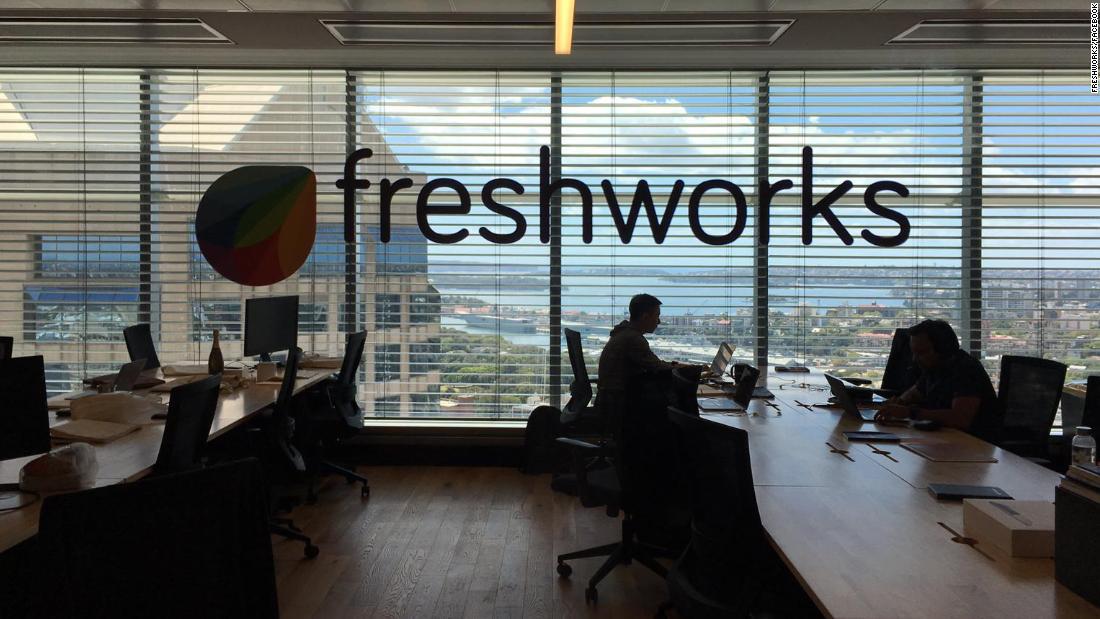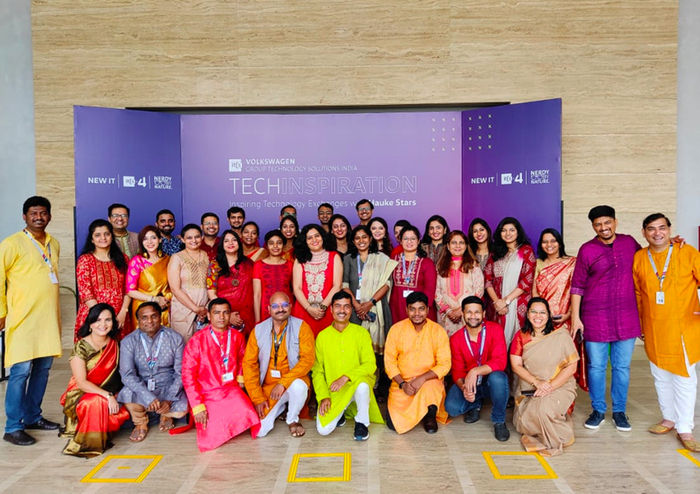India's economy reports record GDP 1:31
New Delhi (CNN Business) -
More than two decades ago, India began its transformation into a global information technology powerhouse, ushering in an era of wealth and job creation never before seen in that country.
Now, Asia's third largest economy is poised for the next great technology frontier: the creation of a new generation of
software
companies
,
like Zoom or Slack.
The covid-19 pandemic has forced companies around the world to make huge investments in digital infrastructure, fostering the influence of companies that offer
software
as a service, or ScuS.
Last year, companies invested an additional $ 15 billion a week in technology as they strove to create safe remote work environments, according to a KPMG study.
Zoom buys Five9 in $ 14.7 billion deal to prepare for a post-pandemic world
ScuS companies provide web-based applications that take care of everything from
software
security
to performance.
Some of the best-known ScuS companies in the world include Zoom, SAP Concur, and Salesforce, the US giant that owns the work messaging app Slack.
India's
software
as a service
sector
could reach a value of US $ 1 trillion by 2030 and create almost half a million new jobs, according to a recent report by consulting firm McKinsey & Co. and SaaSBoomi, a community of leaders. of the sector.
In India there are almost a thousand such companies, of which 10 are unicorns, or
startups
worth at least $ 1 billion, according to the report.
"This can be as big of an opportunity as the IT services industry was in the 1990s," said Girish Mathrubootham, CEO of Freshworks, India's best-known ScuS company.
Last month, it filed an initial public offering (IPO), joining a number of the country's big tech unicorns that will go public this year.
advertising
Freshworks was founded more than a decade ago in the city of Chennai, in South India.
Like Salesforce, it provides
software
to help companies manage their customer relationships.
It is also India's oldest unicorn in the sector, having raised funds from investors such as Tiger Global and Accel, and has more than 50,000 clients.
The company was last valued at $ 3.5 billion in a 2019 funding round, according to data firm Tracxn.
Other Indian ScuS firms have found momentum by focusing on niche businesses.
Zenoti, for example, is a unicorn that builds
software
for the spa and salon industry.
Of ScuS India's 10 unicorns, six reached that milestone in 2020, and investors around the world are paying attention.
Last year, investors injected $ 1.5 billion into Indian ScuS companies, four times more than in 2018 or 2019, according to the SaaSBoomi report.
Optimistic investors
Investors are excited about ScuS because of the "mass adoption" of
software
in the last decade, according to Mohit Bhatnagar, Managing Director of Sequoia Capital India.
Although India is a small player in the global ScuS market, investors say the country could come to dominate the sector for two reasons: its large pool of English-speaking developers and the relatively low cost of hiring them.
Thanks to the rise of the Indian information technology industry, software engineering has become one of the most sought-after career options in the country.
Pandemic: the "symbiotic relationship between human anatomy and digital technologies"
"India has one of the largest developer communities in the world," Bhatnagar tells CNN Business.
Many of them have worked in some of the largest technology companies in the world.
Abhinav Asthana, co-founder of Postman, noted that his experience as an intern at Yahoo, Bengaluru, was instrumental in the decision to create his product.
He came up with the idea to build a tool that would simplify the API (Application Programming Interface) testing process.
An API is programming code that defines how two applications communicate with each other, and Postman says it has made it easier for engineers to design and build their APIs.
"We saw how
software
was created
in these global companies, and we saw that the API was a key problem," Asthana told CNN Business.
Now, Postman is the most valuable ScuS unicorn in India, with a valuation of US $ 5.6 billion.
International Clients, Indian Engineers
The low cost of operating in India is a great advantage.
According to a report by the consulting firm Bain & Company, the salary of entry-level developers in India is 85% lower than their counterparts in the United States.
"If you're starting a ScuS business in the United States, it's better to have a million dollar customer than a $ 10,000 customer, because you have to pay for sales and marketing in that country," says Prasanna Krishnamoorthy, Managing Partner of the ScuS Upekkha accelerator.
"When you serve clients in India, you can have these small and medium-sized companies as well as the big ones."
Most of ScuS companies focus on global customers, similar to the strategy followed by Indian IT giants such as TCS and Infosys.
Investors see this as a favorable change, as most of India's oldest unicorns, from Flipkart to Paytm, have focused primarily on the domestic market.
What's up with unicorn companies in the market?
1:41
Nearly 98% of Fortune 500 companies use Postman's products, according to Asthana, while Freshworks' first customer was based in Australia.
ScuS companies are much better placed to go global than e-commerce companies like India's Flipkart, for example.
They write the
software
once and can use it multiple times.
"For a Flipkart, it takes billions of dollars [to grow internationally], but for a Freshwork, it takes a lot less capital to go global," says Mathrubootham, who is also an investor in Postman.
This is because e-commerce companies need a lot of money to set up physical operations elsewhere - they have to hire delivery drivers, rent warehouses, and buy inventory.
Sequoia Capital's Bhatnagar said Indian
software
entrepreneurs
"mastered" the art of "distance selling" fairly early.
"Honestly, in these last two years, everyone has had to understand how to do better distance sales," he added.
Despite the euphoria, there are some hurdles that Indian companies have to overcome before they can deliver on the trillion dollar promise.
Why you shouldn't ignore software updates
Indian engineers trained in IT services may find it difficult to develop the discipline necessary to create a product-centric company.
In IT services, "they are sales bodies and they say yes to everything the customer says," said Krishnamoorthy.
ScuS companies, by contrast, have to say no to 99% of [potential] customers, he added.
And India's startup ecosystem remains relatively immature compared to Silicon Valley.
Despite the enormous size of some local unicorns, Mathrubootham said the country does not have a "global technology product brand."
But he hopes future ScuS ventures can change that.
"My personal dream is to see India as a nation of products," he added.
India









